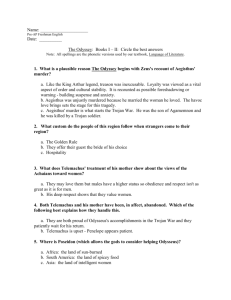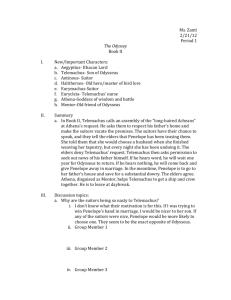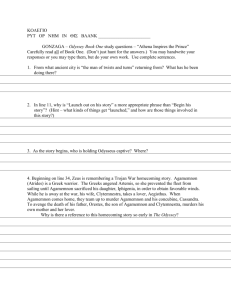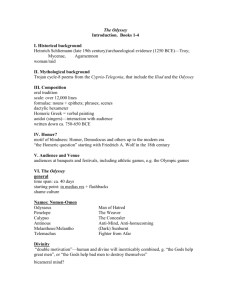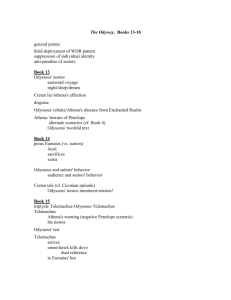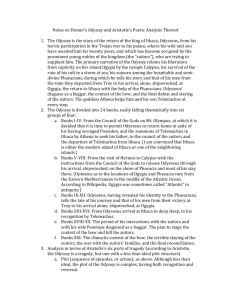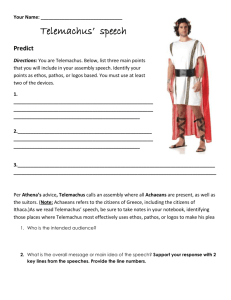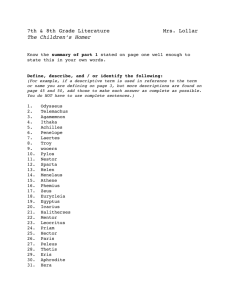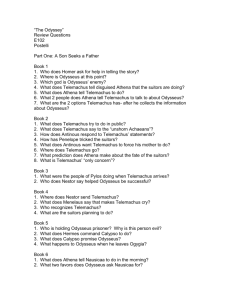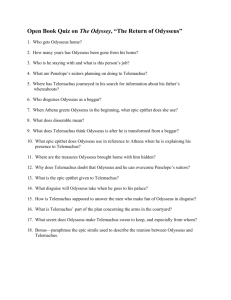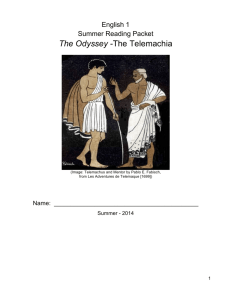Most scholars agree that the time period in which the events in the
advertisement
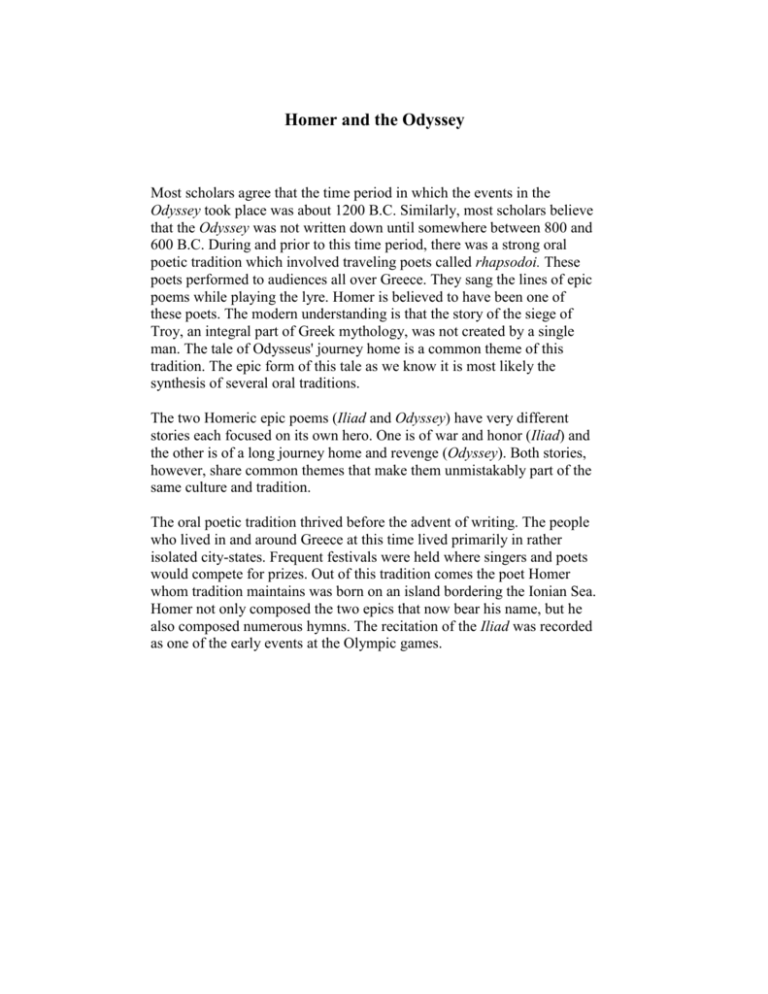
Homer and the Odyssey Most scholars agree that the time period in which the events in the Odyssey took place was about 1200 B.C. Similarly, most scholars believe that the Odyssey was not written down until somewhere between 800 and 600 B.C. During and prior to this time period, there was a strong oral poetic tradition which involved traveling poets called rhapsodoi. These poets performed to audiences all over Greece. They sang the lines of epic poems while playing the lyre. Homer is believed to have been one of these poets. The modern understanding is that the story of the siege of Troy, an integral part of Greek mythology, was not created by a single man. The tale of Odysseus' journey home is a common theme of this tradition. The epic form of this tale as we know it is most likely the synthesis of several oral traditions. The two Homeric epic poems (Iliad and Odyssey) have very different stories each focused on its own hero. One is of war and honor (Iliad) and the other is of a long journey home and revenge (Odyssey). Both stories, however, share common themes that make them unmistakably part of the same culture and tradition. The oral poetic tradition thrived before the advent of writing. The people who lived in and around Greece at this time lived primarily in rather isolated city-states. Frequent festivals were held where singers and poets would compete for prizes. Out of this tradition comes the poet Homer whom tradition maintains was born on an island bordering the Ionian Sea. Homer not only composed the two epics that now bear his name, but he also composed numerous hymns. The recitation of the Iliad was recorded as one of the early events at the Olympic games. The Odyssey Summary of Books 1-4 Odysseus, lord of Ithaca, had been missing from his kingdom for twenty years. The first ten had been fighting in the Trojan War, and the next ten had been spent in continual wanderings en route home from the war. His wife Penelope, in the meantime, has been harassed by dozens of suitors who have come from the surrounding islands in order to win her hand in marriage. Penelope, still believing Odysseus to be alive, tries to delay the suitors by making them a promise. She wills chose a husband among them when she has finished weaving a shroud for her father in law Laertes, who lives on a farmed away from the city. However, when alone at night, Penelope secretly undoes the work she had completed that day so that the task will go on indefinitely. Unfortunately her plan has been discovered by the suitors, who now demand she choose one of them immediately. The suitors, who have been awaiting her decision for several years, have spent their days feasting in Odysseus’ hall. In doing so, they are devouring his livestock and abusing his servants. The direct victim of their behavior is Telemachus, the son of Odysseus who is now approaching manhood. The suitors constantly taunt Telemachus, who is the heir of Odysseus’ property and title. Athena, goddess of wisdom and daughter of Zeus, begs her father to allow Odysseus to return home at last, for he has spent the last seven years on the island of the nymph Calypso, who holds him captive. Zeus agrees with his daughter and Athena comes down from Mount Olympus to visit Telemachus in disguise. She convinces him that he should sail abroad and seek information concerning his father. Though feeling helpless concerning his father’s fate, Telemachus agrees to the journey. Athena manages to get together a crew and ship for Telemachus, and he departs without informing his mother and the suitors. When his mother finds out he has left, she despairs with the thought that Telemachus will share the same fate as his father. The suitors, angered by Telemachus’ departure, set out an ambush for his return. Telemachus arrives at Pylus where Nestor, the famous counselor of the Trojan War, warmly greets him. He tells Telemachus of the various homecomings of the Greeks, including the fate of Agamemnon, who was killed by his wife Clytemnestra. He then advises Telemachus to visit Menelaus in Sparta. In Sparta he meets with Menelaus and Helen and learns of Odysseus’ imprisonment on the island of Calypso.
